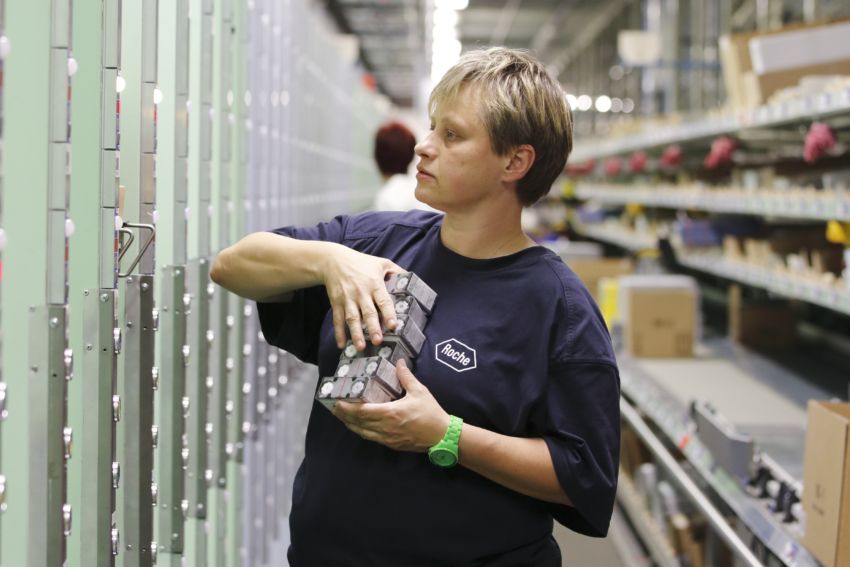Flexible working enters pilot phase
“Flexible working helps employees make work and leisure even more compatible,” says Valerie Ernst, head of the “Flexible Working” working group, whose members include representatives from the Roche Employees’ Association (AVR), employee networks, Diversity and Inclusion Basel/Kaiseraugst, and the Roche Works Council (AKR). This also benefits the employer: “Studies show that flexible working conditions have a positive impact on employees’ performance and commitment,” says Valerie.
Although there are already a number of flexible working models at Roche, they are not yet widely known or – in some parts of the company – not yet widely used. For example, only 17 percent of all Roche employees in Basel and Kaiseraugst work part-time and just 2 percent use flexible retirement models.
There are several reasons for this. Employees worry about missing out on career opportunities or their managers may have a negative attitude, for example. Line managers are wary of having to spend more time on planning, or are not yet fully aware of the options.
The “Flexible Working” working group has therefore developed specific measures for supporting flexible working models at Roche. As a priority, it has drafted a guide for employees who are not office-based, which is planned to be distributed soon via Human Resources. “It is possible to work flexibly even in jobs with high attendance requirements, such as in the lab or when doing shift work,” the project head stresses. Laboratory technicians can do documentation work or online training at home, for instance. There are opportunities even for people who work shifts: as part of a job share, one person could always do the early shift and the other the late shift, for example.
The working group has given thought to line managers, too. They will receive additional training on the topic in existing workshops – with new managers attending the “Essential for Line Manager Program” and experienced managers the “Leadership Excellence Program”. As Valerie explains: “For line managers, the main thing is to clarify issues, overcome people’s reservations and encourage them to share their experience.” For this purpose, the working group has also made best-practice videos featuring line managers who have adopted flexible working themselves, or promote it in their teams.
Important: A digital toolbox will come online in December containing complete information for employees and managers, including the guide for employees and the best-practice videos for managers (subscribe here).
The website will also have a link to the “Flexible Working” booklet, which summarises the results of a study conducted by the working group and the University of Applied Sciences Northwestern Switzerland. The background: At the working group’s request, in 2018 two academics at the School of Business investigated flexible working practices at Roche. The project was financed by the Swiss State Secretariat for Economic Affairs (SECO). “The booklet is now being made available nationwide in Switzerland because it is being published on the SECO website, among other places,” Valerie is pleased to report. This means that smaller businesses in particular will receive useful advice on how to implement flexible working.
